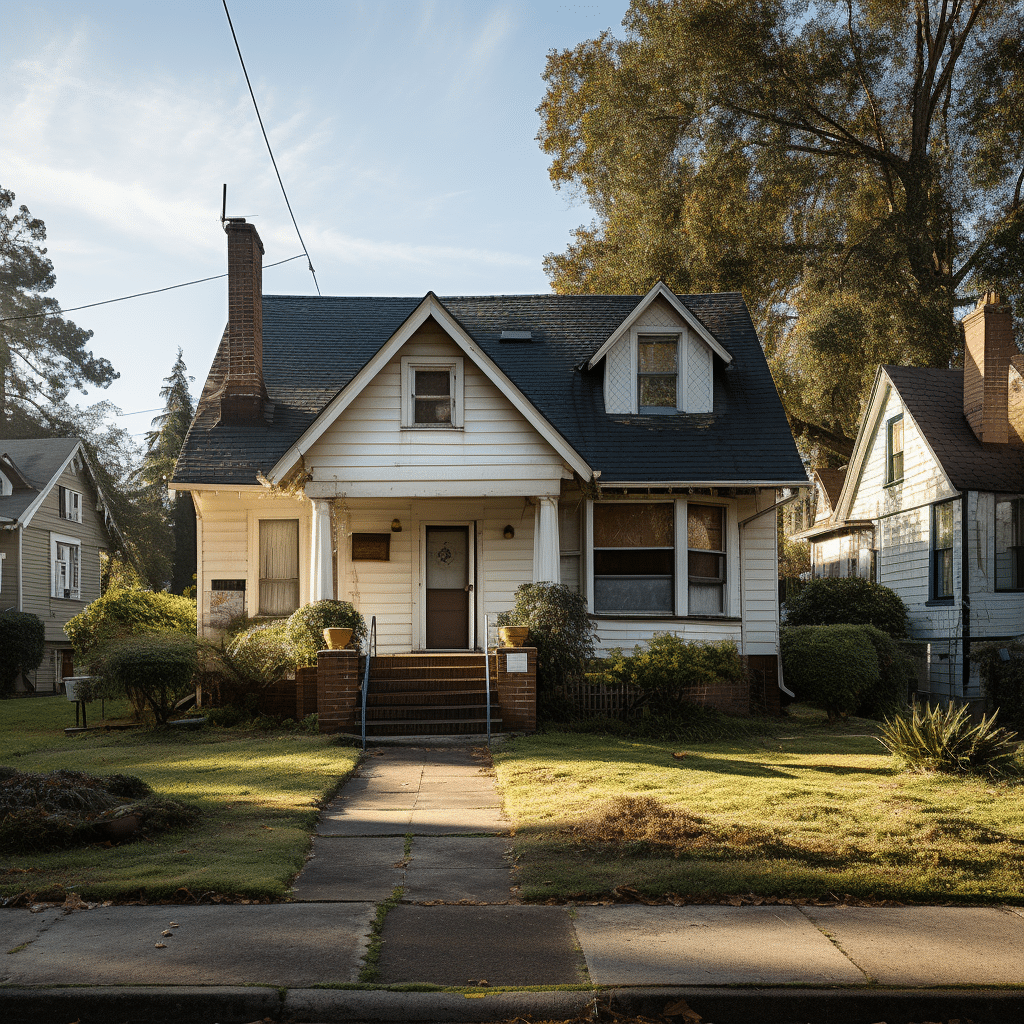The concept of buying a home for just a dollar might sound like a dream come true or a plot from a feel-good Hollywood movie, like something Elaine Hendrixs character would artfully swindle. But let’s peel back the layers and investigate: Is this really in the realm of possibility, or is it a hopeful myth perpetuated by misinformed chatter?
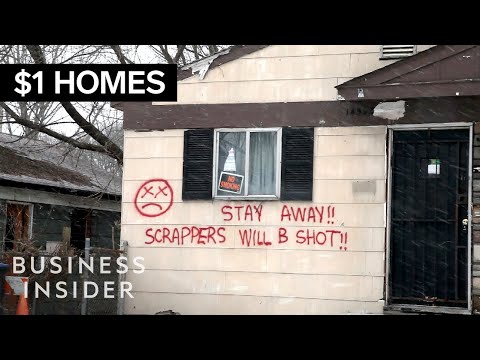
Unpacking the Myth of Government Homes for $1
The tale of government homes selling for just a buck has been around for a while, whispering through the grapevines of hopeful homebuyers and frugal dreamers alike. Its roots lie in various government programs aimed at rejuvenating neighborhoods and sparking home ownership among those who might not afford it otherwise.
History serves us with instances where properties have been offloaded for nearly symbolic sums. But was there ever a law or a consistent program allowing such sales? It’s murky. Although few and far between, these deals often involved homes that were foreclosed and then acquired by the government, typically due to tax liens or similar issues.
The public perception might be hopeful, but the reality often comes with a forensic-level load of fine print. This belief that you can snag Everything but The house for a single dollar could be misleading, and it’s essential to understand the complete picture.
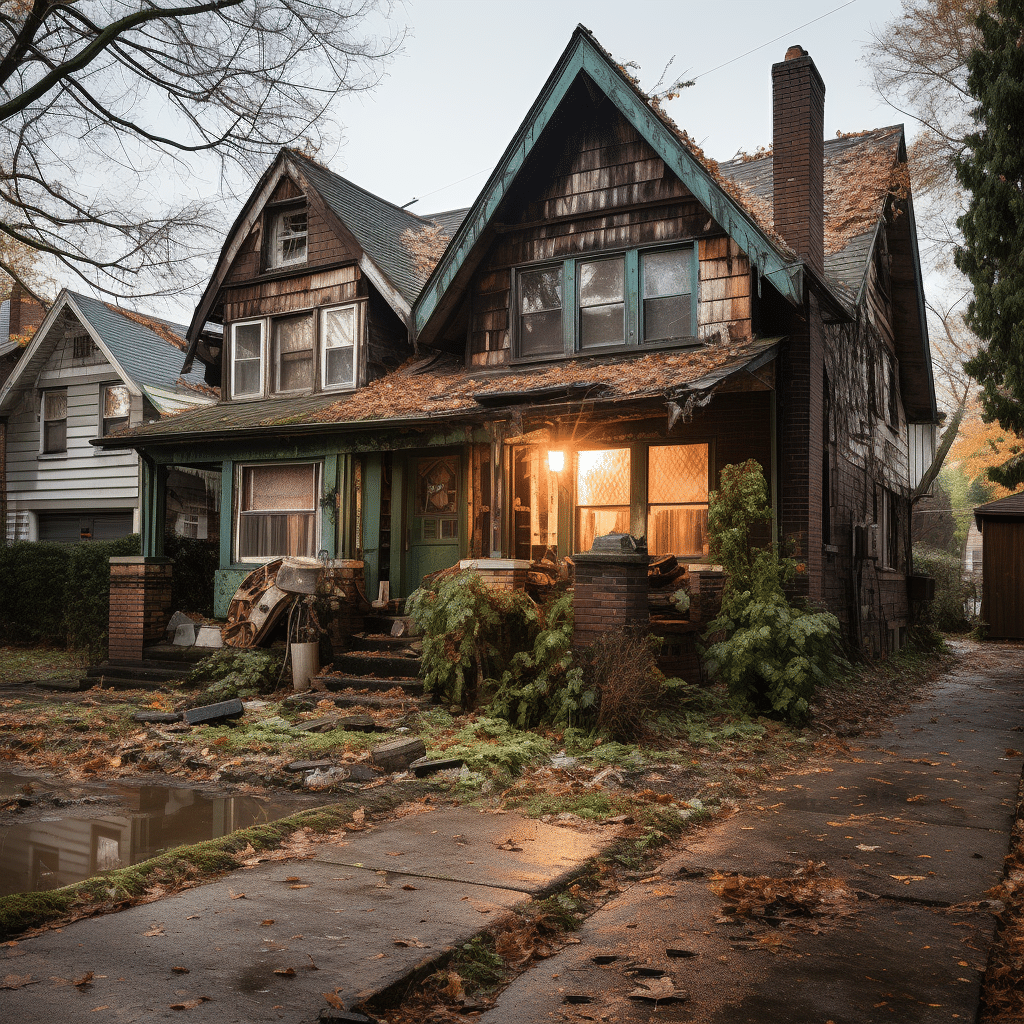
The Real Deal on $1 Home Sales
Rumors of $1 home sales aren’t entirely unfounded. HUD’s Dollar Homes initiative has typically provided local governments the chance to offer a hand-up, not a handout, for those earning their slice of the American Dream at rock-bottom prices. But these instances are rare gems in the vast bedrock of real estate deals.
Digging into the nitty-gritty, we learn that these homes sometimes come with a fair amount of baggage. Often they’re in dire need of affection, and renovation costs can turn that dollar deal into a Morticia Addams of a money pit. Plus, there’s always fine print involving property taxes, housing codes, and other conditions that would make your head spin faster than if your house is sold at auction and you’re left pondering how long do you have to move.
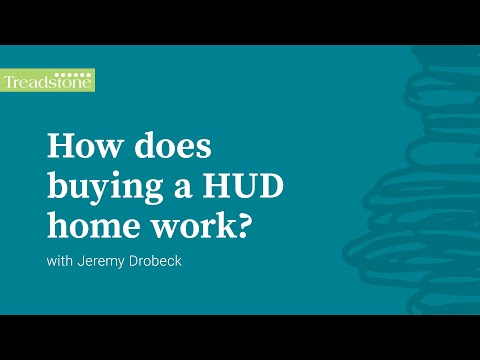
| Feature | Details |
|---|---|
| Program Name | HUD’s Dollar Homes Initiative |
| Purpose | To assist local governments in providing housing opportunities for low to moderate income families. |
| Property Eligibility | 1- to 4-unit residential properties acquired by HUD due to foreclosure on an FHA-insured mortgage. |
| Acquisition Cost | $1 (one dollar) for eligible local governments |
| Eligible Buyers | Local governments |
| Buyer Intent Requirement | Must address specific community needs (e.g., fostering housing opportunities). |
| Resale Conditions | If a buyer sells the house for $1, it’s considered a gift; tax basis remains the same. |
| Property Value Consideration | Resale at $1 does not reflect market value; original purchase price maintains as tax basis. |
| Official Website | hud.gov (and not us-gov or hud.com or hudgov.us, which may be scam sites) |
| Scam Alert | Beware of scam sites or so-called foreclosure prevention specialists claiming affiliation with HUD. |
| Benefits | – Community revitalization through homeownership |
| – Preservation of affordable housing stock | |
| – Mitigation of blight in communities | |
| Additional Costs | Possible rehabilitation or repair costs as HUD homes are sold “as is. |
| Time Frame | Dollar Homes are available to local governments for a limited time after HUD acquires them. |
Contemporary Government Real Estate Programs
Reflecting on the current landscape, we see numerous government programs designed to aid in home buying and community development. The key is to dissect these initiatives to find any resemblance to the ‘$1 home’ concept of yore. These programs’ objectives typically orbit around revitalizing communities and expanding access to affordable housing.
For those looking to plant roots without emptying their savings account, some case studies display the triumphs of government-backed housing projects. However, they also highlight that while the purchase price might seem microscopic, the long-term investment could have more zeroes than expected.
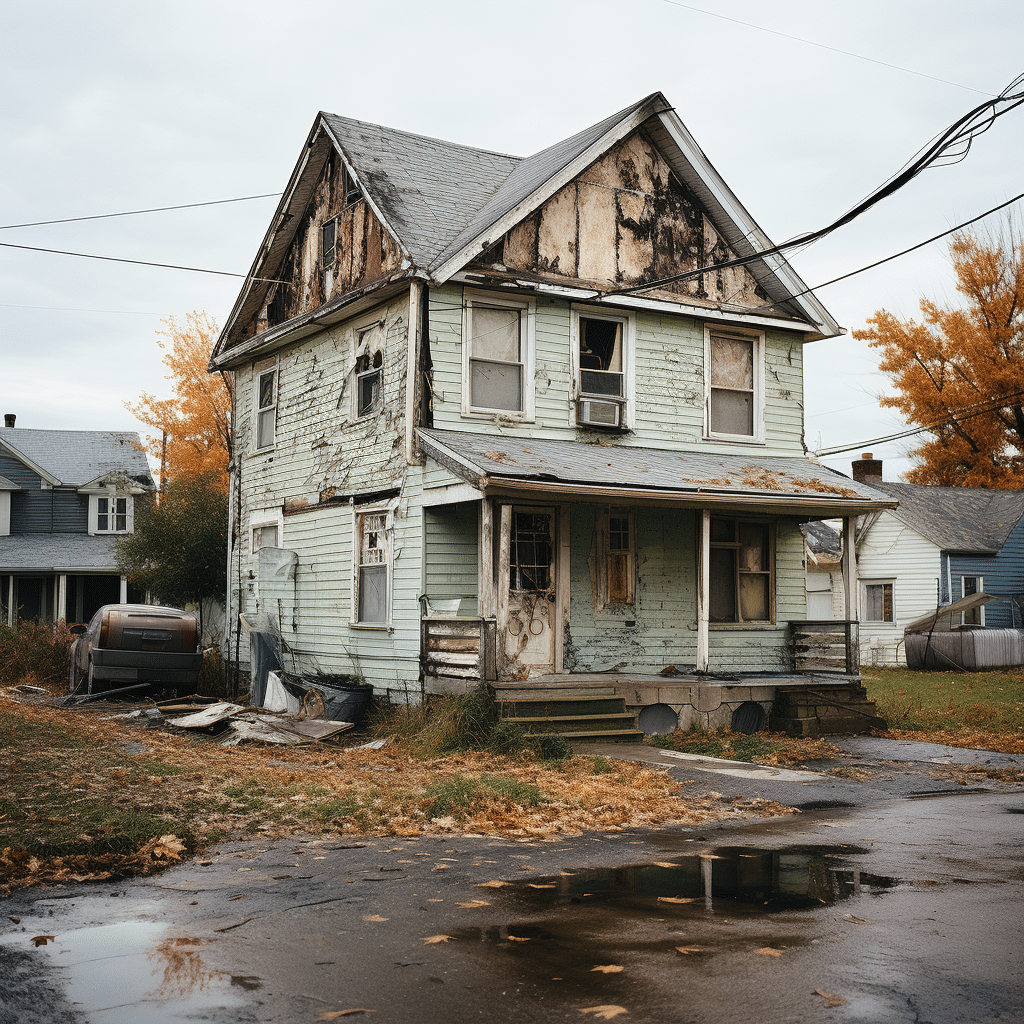
Urban Renewal and the $1 Home Sales Narrative
Urban renewal has often played a character in the $1 home sales story. It’s been a tool in the belt of city planners desiring to breathe new life into neighborhoods that others may have written off. Yet, with renovation costs often towering over the initial savings, it’s worth investigating whether these homes represent the golden ticket or just a golden mirage.
This strategy affects more than just the buildings; it alters community dynamics, brings socioeconomic changes, and redraws the urban blueprint. The legacy of these $1 deals is more complex than just their price tag and calls for a deeper look at what they contribute to the social fabric.
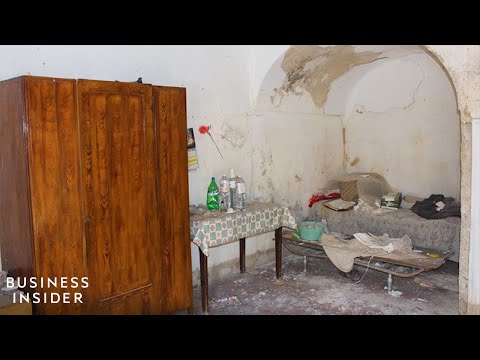
The True Cost of Owning a $1 Government Home
Let’s lay out the plain truth: owning a government-sold $1 home can bring a parade of expenses. Renovation and repair costs can gnaw away at savings, and that’s just the appetizer.
Surveying tales from those who dove into such purchases shows a spectrum of outcomes. For every success story, there’s a cautionary tale of unexpected expenditures and bureaucratic red tape. Financial gurus would weigh in, suggesting you scrutinize these homes through both economic and pragmatic lenses before jumping on the bandwagon.
Alternatives to $1 Government Homes for Affordable Housing
So, what else is cooking in the affordable housing kitchen? There’s a buffet of initiatives out there that may not have the flashy $1 price tag but offer a more steadfast path to homeownership. We’re talking about subsidized housing, tax incentives, and first-time homebuyer programs geared toward creating a sustainable and attainable future for those striding toward the American Dream.
These alternatives warrant a thorough comparison with the $1 home deal, scrutinizing their effectiveness, viability, and overarching impact on the housing crisis.
Navigating the Prospects of $1 Government Properties
Suppose the stars align and you spot a government home listed at the miraculous price of $1. Take a moment—breathe. Belief alone won’t guide you to the Promised Land; you need a game plan, seasoned with a hearty pinch of caution and a dollop of due diligence.
Brace yourself for a quest peppered with legal hurdles, heaps of paperwork, and potentially, a renovation crusade that’ll test the depths of your pockets and patience. But fear not, the journey can lead to a rewarding destination if navigated astutely.
The Future of Government-Sponsored Home Ownership Initiatives
Peering into the crystal ball, the trajectory of government-sponsored home ownership initiatives sparks curiosity. Will we witness a revival of the $1 home sales, or will they be archived in the annals of housing history like a .net meaning that evolved beyond its original designation?
Policy pivots, financial fluctuations, and the ever-pulsing heartbeat of housing needs will sculpt the vista of tomorrow. We can anticipate innovative strategies with a commitment to providing roofs over heads without uprooting financial stability.
Beyond the Bargain: The Enduring Quest for Affordable Homes
Let us stitch together the quilt of gathered insights, pulsing with the essence of lessons learned and the thread of aspirations for affordable housing. The journey through the landscape of $1 government homes is more odyssey than fairy tale, interlacing desire, myth, and the stark face of fiscal reality.
The tale is rich and complex, underpinning the broader conversation about community investment and social equity. As we look toward the horizon, let’s ponder not just the pages of property listings, but the human narratives that weave through the annals of affordable housing.
Take a moment. Reflect on the homespun truths unraveled in this quest and carry forward the wisdom gleaned in the pursuit of governmental guidance in securing homes that don’t break the bank, but rather bank on the prosperity of the community.
The Lowdown on $1 Government Homes
The Stuff of Legends
You’ve heard the urban legend—snagging government homes for just a buck. Sounds like a fairy tale, right? Well, hold onto your hard hats because there’s a kernel of truth here. These unicorns do exist, but they come with more strings attached than a marionette!
A Slice of History
Let’s take a stroll down memory lane. This whole $1 home concept isn’t a newfangled idea birthed in the 21st century; it’s been around since the ’70s! Can you believe that? Back then, Uncle Sam rolled out programs to give a leg up to struggling neighborhoods. The catch? These homes often needed more TLC than a reality TV makeover.
Auction Block Reality
Now, imagine you’re betting on a house at auction, dreaming of paying next to nothing for it. Despite what you might think, even if your bid wins, there’s a fat chance you’ll be living in your new abode the next day. Ever wonder, If Your house Is sold at auction How long do You have To move?” It’s a bit of a roller coaster. Sometimes, you have to skedaddle faster than you can say “foreclosure,” while other times you get a grace period to pack your life into boxes.
The Catch? Oh, There’s Always a Catch
So, you think you’ve struck gold with a $1 home? Well, before you start planning your housewarming party, you gotta check under the hood. Renovations might cost you an arm and a leg—and that’s before we even talk about the red tape gymnastics you have to perform.
The Community Revitalization Twist
Here’s the deal: oftentimes, these homes are part of a grand scheme to spruce up neighborhoods. It means you can’t just flip the house faster than a pancake at a breakfast joint. You’ll need to stick around, roll up your sleeves, and be a part of the community revival dance.
The Fine Print Fun
Okay, let’s get real. Ever read fine print that made your head spin? When it comes to these $1 deals, the contracts can be as thick as a brick. Requirements for rehab, residency rules, and sometimes even a dash of bureaucratic hoop-jumping. Phew!
Reality Check: Dreams vs. Dollars
In the end, nabbing a home for a dollar seems about as likely as finding a needle in a haystack. But for the intrepid, the patient, and the handy, it’s not entirely a pipe dream. Just remember, that old adage “you get what you pay for” might just make you think twice. After all, if it sounds too good to be true, well, you know the drill.
And there you have it, the scoop on the fabled $1 government homes. Fairy tale or not, it’s a wild ride from myth to mortgage!
